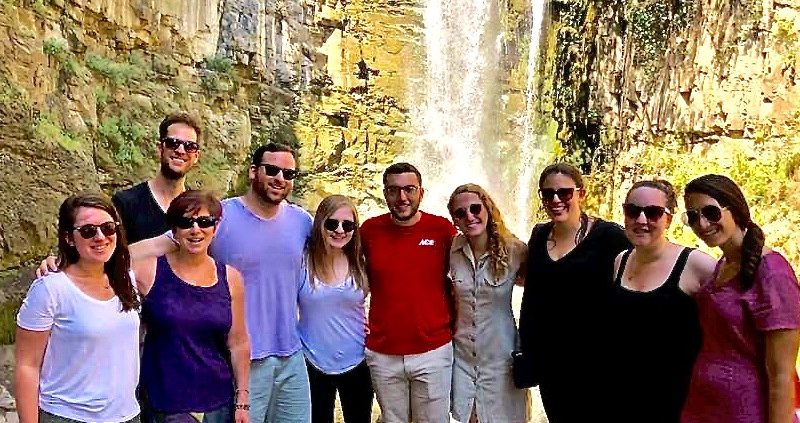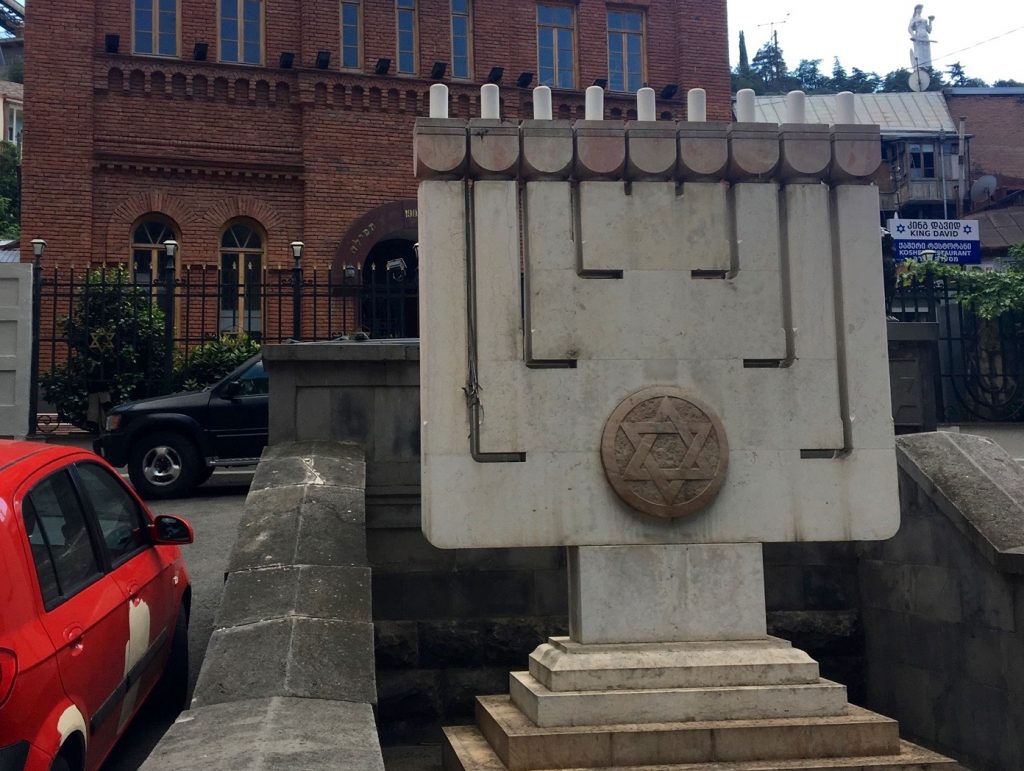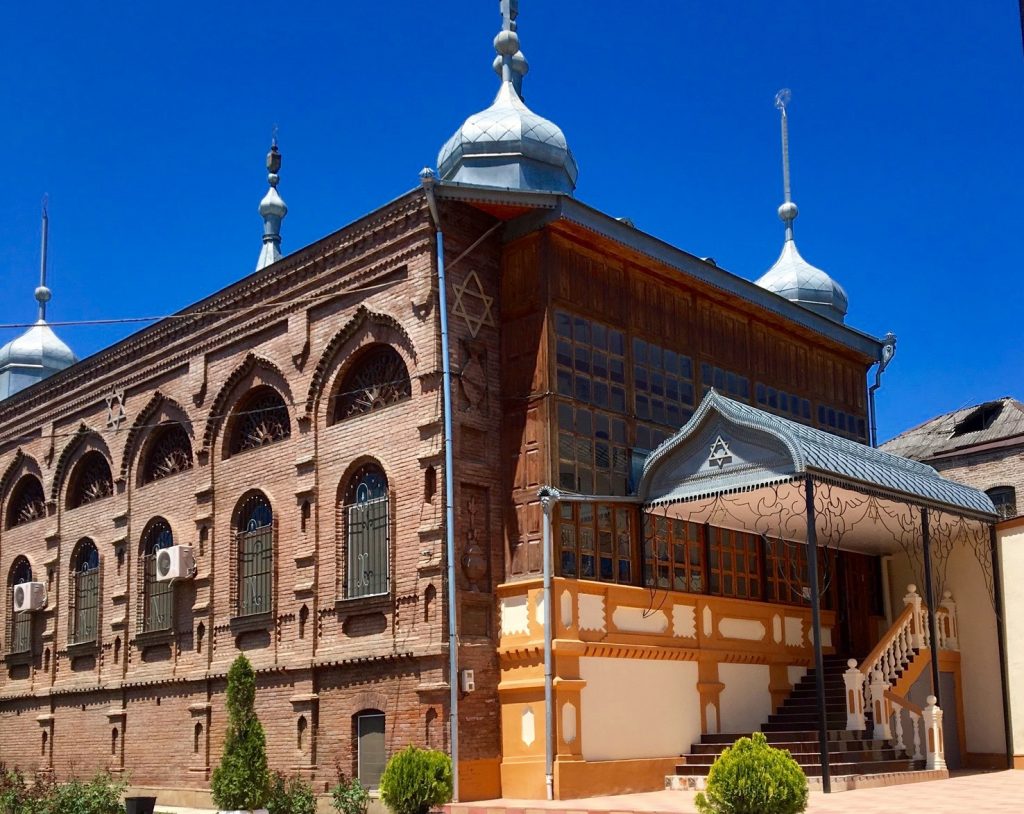David Harris

How You Help: Shaken Out of American Jewish Life with a Visit to Jewish Georgia
By Jason Cook
Jason Cook is pursuing his rabbinic ordination at Hebrew Union College in Cincinnati. He traveled with the American Jewish Joint Distribution Committee (JDC) Entwine program; JDC is funded in part by the Jewish Federation of Cincinnati. Cook’s home is Portland, Oregon, but he has been living in Cincinnati for over a year.
For whom are we responsible?
One of the core Jewish values that underpins the way Jews understand community is found in the phrase kol Yisrael aravim ze l’ze, meaning that all of Israel is responsible one for the other. This is the principle that guided American Jews to support the fledgling State of Israel in the early 20th century. It is the principle cited when the American Jewish Joint Distribution Committee (JDC) worked to free Soviet Jews in the 1970s and ’80s. We think of this principle when we donate to the Jewish Family Services food bank or support the Jewish Federation’s annual campaign, which helps international Jewish aid organizations. It is why we welcome so many Israeli shlichim (emissaries) into our midst, and why we send our children to visit Cincinnati’s partner city in Israel, Netanya.
When we think about our community and our daily lives as Jews though, our focus is not on the Jewish communities of the Diaspora. Our primary concern is our own shopping list, not the shopping list of the Jews of a faraway community.
I recently was shaken out of “typical” American Jewish life. I received a a 10-day glimpse of others’ shopping lists as I traveled with the JDC Entwine program to Azerbaijan and Georgia.
In Azerbaijan, we explored the Jewish community of Baku, the capital city, and met with home-bound seniors who live in poverty and receive aid from JDC programs. We also traveled to the town of Quba, about two hours outside of Baku near the Russian border. There, we visited the Red Settlement, Krasnaya Sloboda, historically known as the Jewish Settlement until the Soviet Union changed the name. About 2,000 Jews live in Krasnaya Sloboda. They speak a dialect of Judeo-Farsi (Juhuri) unique to the ethnic Mountain Jews that have lived in the Caucasus region for over two millennia. Their prayer books may look the same as ours, but the world they live in feels far removed.
Upon arriving in Georgia, we spent a great deal of time with university students and young adults who participate in the Tbilisi Hillel house (unlike in the US, Hillel in Europe and particularly the former Soviet Union is not affiliated with any particular university, but instead is a broader community institution). Our group’s assumption was that we were meeting with other, like-minded, progressive young Jews with whom we would form immediate bonds.

The reality was much different.
It became immediately clear that we would have to work harder to connect with these students and find our shared stories. Simply put, our Jewish experiences are different. One of the Georgians we met grew up not knowing he was Jewish. Others told us about living under the Soviet Union’s oppressive, anti-religious regime, and then the collapse of the USSR and the resulting instability in Georgia. It was humbling to receive a reminder that not all of our stories are the same.
The phrase kol Yisrael aravim ze l’ze comes from the Babylonian Talmud (Shevuot 39b). The discussion in the Talmud is not one of altruism and aid, but instead revolves around issues of oath-making and -breaking. One of the conclusions of this discussion is that certain oaths, made by individuals, must be guaranteed by the entire Jewish community, both near and far. The principle is that, on some level, we are actively responsible for the entire Jewish world, and in turn, the entire Jewish world is actively responsible for us as individuals.
We should not take the statement that all Jews are guarantors for each other as a privilege, we should take it as a challenge. To truly be guarantors for the entire Jewish world, we must meet these Jews.

Our altruism and aid is certainly appreciated. The services that the JDC provides in Former Soviet Union countries and around the world is invaluable and would not be possible without our support. However, we must push ourselves out of our comfort zones, and remember that the world does not always reflect our views and experiences, even the Jewish world. We connect because we share elements of collective memory and because our prayers sound the same. Though we have a predisposition to supporting each other, we are not the same.
On Shabbat, at Friday night dinner, the Hillel students and Hebrew Union College (HUC) students gathered together at the Hillel house. The house is nondescript and even happens to be in the Muslim quarter of the city. When we lit candles and recited our blessings, we had to keep the doors and windows closed “just in case.”
Despite the new spaces, we heard the same prayers, blessings, and songs. Together, we sang the song “Salaam” (some may know it as “Od Yavo”). “Salaam” is a song of peace that can be heard at every Jewish summer camp and youth group event across America, and even, as we found, across the world. The song is distinctive for incorporating the Arabic word for peace, salaam, into the Hebrew lyrics. Our Georgian friends shared with us a new twist: after we sang the song in Hebrew together, they surprised us by singing the song in English and then in Georgian. Though we come from different worlds, speak different languages, and have had different upbringings, we were still able to sing of peace together. In that moment, our differences did not divide us, but instead gave us a deeper connection.
We are guarantors for each other. No matter where in the world we may be, we must push ourselves to know the people and the Jewish world for whom we are responsible.
Stay connected to Jewish community news and the lives you change: sign up for our newsletter here.

